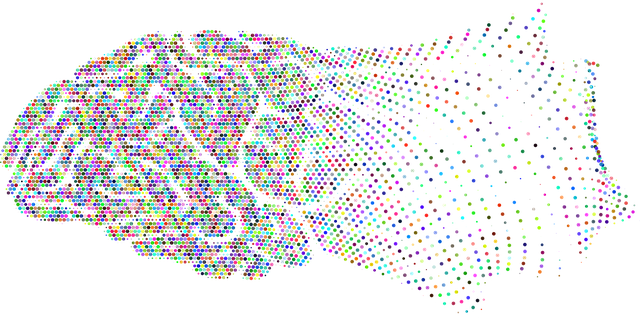Englewood's substance abuse crisis demands a holistic approach addressing high opioid addiction rates, overdoses, and limited access to mental health services. Implementing Mindfulness Meditation and Emotional Intelligence programs can build resilience. Advocacy for robust Mental Health Policy Analysis ensures evidence-based interventions like expanded insurance coverage and community program funding. Community health workers must build trust through cultural sensitivity and tailored programs, while Healthcare Provider Cultural Competency Training strengthens local support networks. Strategic outreach initiatives like Englewood Drug Abuse-Substance Abuse Therapy, integrating Mind Over Matter principles and self-care practices, foster positive thinking and resilience. Effective implementation requires long-term planning, strong partnerships, and leveraging technology to overcome challenges, resulting in enhanced community well-being.
Englewood, like many communities, struggles with substance abuse. Understanding the local drug abuse landscape is crucial for designing effective outreach strategies. This article delves into the comprehensive overview of Englewood’s drug abuse issues and explores successful community-based programs aimed at providing substance abuse therapy. We discuss best practices, strategies to overcome challenges, and long-term sustainability plans, offering valuable insights for communities facing similar issues. By focusing on evidence-based approaches, we aim to enhance efforts in the battle against substance abuse.
- Understanding Englewood's Drug Abuse Landscape: A Comprehensive Overview
- Designing Effective Outreach Strategies for Substance Abuse Therapy
- Implementing Community-Based Programs: Success Stories and Best Practices
- Overcoming Challenges and Measuring Impact: Long-Term Strategies for Sustainability
Understanding Englewood's Drug Abuse Landscape: A Comprehensive Overview

Englewood, a community grappling with substance abuse, requires a multifaceted approach to address its unique challenges. The drug abuse landscape here is complex, with high rates of opioid addiction and related overdoses, highlighting the urgent need for intervention and support. This problem is not merely a public health issue; it has deep societal implications, affecting families, schools, and overall community well-being.
A comprehensive overview reveals that access to substance abuse therapy and mental health services is limited, often due to resource constraints and systemic barriers. Here, Mindfulness Meditation and Emotional Intelligence programs can play a pivotal role in enhancing resilience and coping mechanisms among residents. Moreover, advocating for a robust Mental Health Policy Analysis can ensure that evidence-based interventions are integrated into community outreach programs, fostering a culture of mental well-being and reducing the impact of drug abuse.
Designing Effective Outreach Strategies for Substance Abuse Therapy

Englewood’s struggle with drug abuse highlights the pressing need for effective outreach strategies in substance abuse therapy. To address this, community health workers should focus on building trust within targeted neighborhoods through cultural sensitivity and tailored programs. This involves understanding local dynamics, engaging trusted community figures, and employing peer support models that resonate with at-risk populations. By integrating these principles, outreach efforts can overcome barriers to treatment access, fostering a more inclusive and successful recovery environment for all residents in Englewood, regardless of background or social status.
Incorporating Mental Health Policy Analysis and Advocacy into these strategies is vital. Analyzing existing policies and advocating for changes that support accessible substance abuse therapy, such as expanding insurance coverage and funding for community-based programs, ensures a more robust safety net for those struggling with addiction. Additionally, Healthcare Provider Cultural Competency Training equips professionals with the skills to deliver culturally sensitive care, fostering trust and improving outcomes. The development of Mental Wellness Coaching Programs can also empower individuals within the community to become advocates for their own mental health and that of their peers, ultimately strengthening local support networks and promoting a holistic approach to wellness in Englewood.
Implementing Community-Based Programs: Success Stories and Best Practices

Implementing community-based programs like Englewood Drug Abuse-Substance Abuse Therapy can be a game-changer in addressing social issues. Success stories from such initiatives highlight the power of collaboration between local organizations, healthcare professionals, and residents. By integrating Mind Over Matter principles and promoting Self-Care Practices, these programs not only combat drug abuse but also foster positive thinking and resilience within the community.
Best practices include tailoring interventions to meet unique cultural and social needs, ensuring accessibility for all, and empowering community members as active participants in their own healing and growth. Positive outcomes are often seen when programs encourage open dialogue, provide educational resources, and offer safe spaces for emotional expression. Such holistic approaches not only reduce substance abuse but also enhance the overall well-being of the community, creating a ripple effect that reverberates through generations.
Overcoming Challenges and Measuring Impact: Long-Term Strategies for Sustainability

Implementing community outreach programs like Englewood Drug Abuse-Substance Abuse Therapy requires a long-term strategy to ensure sustainability and measure impact effectively. Overcoming challenges is paramount; these can include funding constraints, community resistance, or logistical hurdles. To navigate these obstacles, organizations should focus on building strong partnerships with local stakeholders, fostering trust through transparent communication, and leveraging technology for efficient program delivery and data collection.
Measuring the impact of such initiatives is crucial for sustaining support and securing future resources. By integrating Emotional Intelligence and Stress Reduction Methods into outreach strategies, programs can better connect with communities and address their unique needs. Additionally, implementing robust Risk Management Planning for Mental Health Professionals ensures that services are delivered safely and effectively, enhancing program credibility and community acceptance over time.
Englewood’s journey towards combating drug abuse highlights the power of community outreach programs. By understanding the local landscape, designing tailored strategies, and implementing successful initiatives, it is possible to significantly impact substance abuse therapy access and long-term recovery rates. Overcoming challenges through collaboration and measurement ensures these programs remain sustainable, offering hope and healing to those in need within the Englewood community. This comprehensive approach can serve as a model for other urban areas facing similar drug abuse issues, fostering healthier and stronger neighborhoods.












